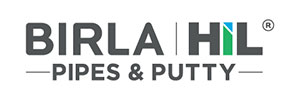Water Softener Plant
Overview of Water Softener Plant
Softeners are devices that use ion exchange resin, an insoluble matrix, to clean and deionize water. The resin contains pores with highly developed surfaces that attract ions and release them. The ion exchange resin is manufactured to prefer one ion over another, and most are made from cross-linked polystyrene. In addition, the regeneration process involves using water that is disposed of as waste. Another type of softener treatment plant is ionized water. These units use negative ions to reduce dissolved contaminants in water.

Frequently Asked Questions
Automatic water softeners are designed to remove hardness from water without leaving scale deposits behind. They pass feedwater through an ion exchange resin, replacing magnesium and calcium ions with sodium ions. Periodic regeneration of the resin will remove the remaining calcium and magnesium ions, replaced by magnesium and calcium ions. Fully automatic, they don’t need to be manually operated. A typical automatic water softener can last up to seven years, depending on the model.
ThreeM(tm) Fully Automatic Water Softener is a compact, low maintenance softener for the entire family. The SFT-200FS both use ion exchange technology. The 3M Softener does not require manual intervention for regeneration and regenerates itself while the user is asleep. It can perform multiple regenerations, ensuring that the water softening process continues smoothly.
There are four different series of Automatic Water Softeners available. Each model is designed to meet different needs, including commercial applications. Among these is the SFT-200 series, which uses ion exchange technology and a programmable multi-port valve. Both series contain the same technology but use a slightly different ion-exchange resin, and it is also compatible with the SFT-200FS ion-exchange technology.
Choosing a water softener is a complex process, and there are a variety of types and costs to consider. If you’re unsure of what you need, read this guide to choose the right type for your home. It can be not very clear to determine which kind of water softener is the best choice for your home. But once you’ve made the decision, you’ll be glad you made the right choice.
Choosing a softener is determining how often you need to regenerate it. Some models are automatically programmed to regenerate their beads when low on salt. Others require you to manually run the softener for several days to reach the desired level of softness. To make sure your unit is working at its peak, choose a volume-controlled model. The volume of soft water varies according to the hardness of your water and the amount of water you use. Using a meter controlled softener will ensure the most efficiency and less salt usage.
When comparing water softeners, it is best to choose the most suitable one for your needs. The two main types are salt-based and timed-regeneration. Salt-based water softeners are designed to remove heavy minerals from water and return it to its neutral state. These softeners typically use small amounts of salt to make them more effective. But some people find them ineffective and would prefer other options.
Salt-based water softeners are the most traditional and commonly used. They are designed to supply the entire home with softened water. They typically feature high rates of flow. The resin inside these softeners attracts the calcium and magnesium in hard water and replaces them with sodium ions. This method of water softening is also known as ion exchange. The only drawback of salt-based systems is that you must replace the salt in the tank every few weeks.
Salt-free water softeners work by removing heavy minerals from water. They reduce the need for detergents. They also clean water without harming pipes. The most important benefit of salt-free systems is that they don’t require any maintenance, don’t require regular servicing, and can be installed on any plumbing. So, if you’re planning to install a new water softener in your home, make sure to read the directions carefully to ensure you’ll get the best results.
The answer to the question “Do water softeners automatically recharge?” is yes. The regeneration process is triggered by the amount of hardness minerals a softener has collected over time. Regeneration can occur daily, weekly, or monthly basis, depending on the type of system you have. It is important to set your softener to regenerate at a set interval, which can be manually scheduled on a timeclock. Many water-softening systems automatically restart after they reach a predetermined level of hardness. Some models use a sensor to detect hardness levels and re-regenerate when they reach a certain level. However, if you do not have a time clock or prefer to set your schedule, you should be aware of this limitation.
A water softener should regenerate every day or two days, depending on how much water it uses. Some models regenerate as often as once every five to seven days, but most softeners have a reserve built-in. A water softener that does not regenerate will eventually deplete its sodium and lose effectiveness. Alternatively, you may want to consider a system with a regeneration option.
How often water softeners need to regenerate is determined by the amount of water they are treated with. A single-tank system should regenerate daily, but it may have to do so more frequently if you have a hard-water area. The regeneration process may need to occur more frequently if the water is particularly hard or has high amounts of iron. Still, it is important to remember that a water softener should handle a specific amount of water.
If you have hard water, you probably already have a water softener in your home. However, if you don’t use it often, you may not realize that it’s a problem. Hard water causes your laundry to feel stiff and can make it difficult to straighten your clothes. This is because hardened water doesn’t react as well with detergent and soap, so it’s more difficult to use a softener.
A water softener is an excellent way to make water with high hardness levels easier to handle. The traditional water softener removes the scale from hard water, which can be a nuisance. Even if you’re using a private well, the water is likely to be hard. The good news is that the white deposits are easier to clean, and the laundry looks brighter. Additionally, a regular water softener can prolong the life of your appliances and water heater.
The disadvantages of a water softener are many, but a few stand out. The first is that a water softener will use a large amount of water and return salt to the wastewater. That’s not eco-friendly, and you could end up paying more in the long run. Second, a water softener will increase the salinity of your water. This means that the salt you’re replacing is more expensive, which you can’t afford. This is an important consideration for any homeowner.
Client testimonials
Our Clients
















